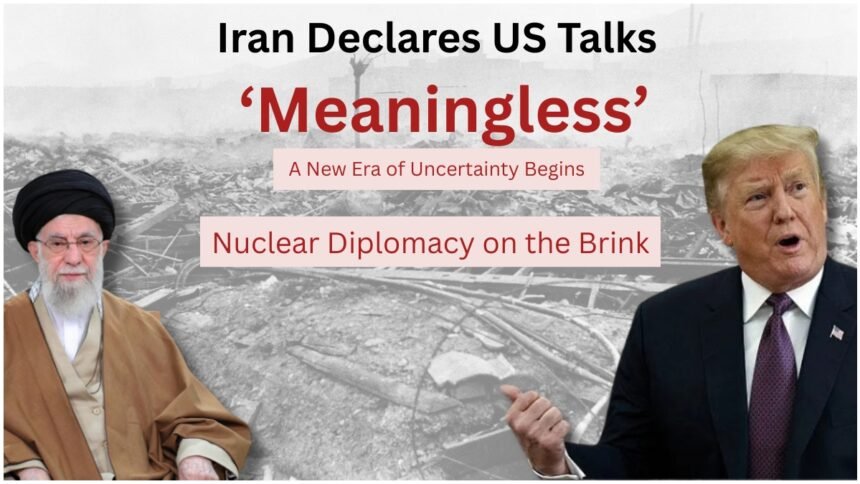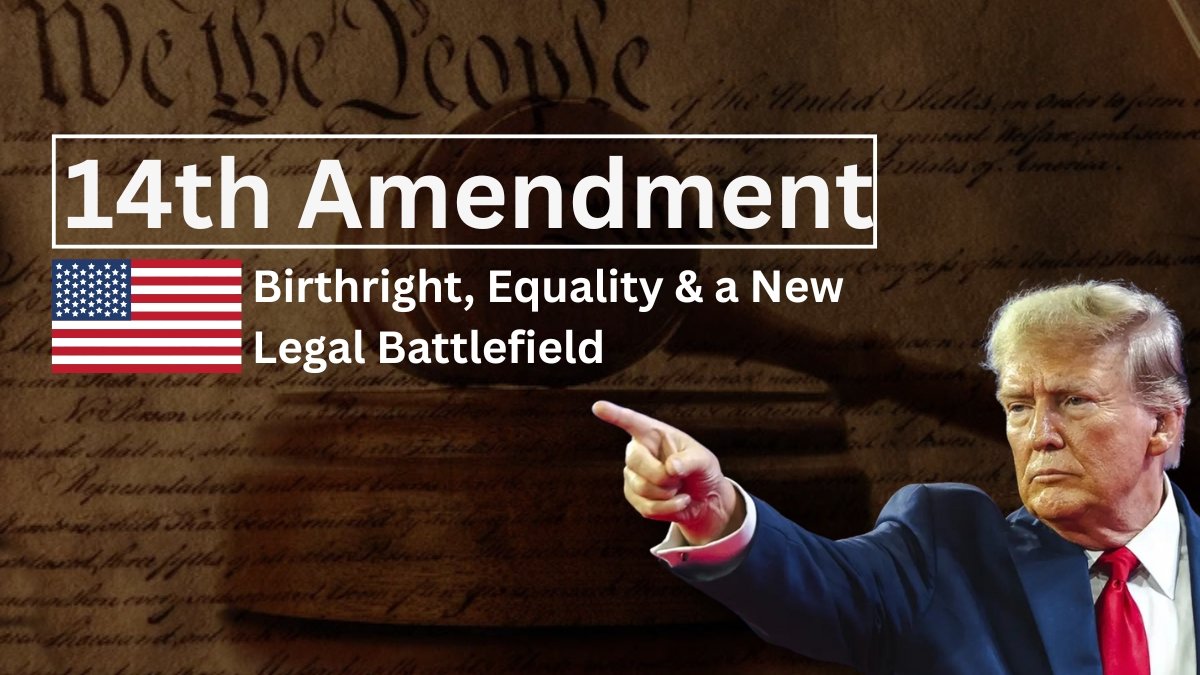Opening Snapshot
Iran Calls US Talks Meaningless : Start with a vivid scene: Tehran’s airwaves echoing explosions, global leaders reacting, and a sudden diplomatic freeze. On June 13, 2025, Iran’s spokesperson, Esmaeil Baghaei, declared that “talks with the U.S. [have] become meaningless” after what Tehran called Israel’s largest-ever airstrike—backed, Iran claims, by Washington . This represents a sudden derailment of momentum toward renewing nuclear talks in Muscat. In this post, we’ll unpack the political, strategic, and economic dimensions of this moment—and what comes next.
READ MORE :- Dutch Government Collapses as Far-Right Leader Geert Wilders Withdraws from Coalition
The Incident That Changed Everything
- What Israel did: On June 13, 2025, under “Operation Rising Lion,” Israel struck major Iranian nuclear facilities (Natanz, Isfahan, and military compounds near Tehran), killing top generals and nuclear scientists
- Iranian Toll: Iran reports 78 killed and over 320 wounded, prompting a harsh vow from Tehran’s Supreme Leader
- Iran retaliates: In a swift missile and drone counterstrike, hundreds of Iranian projectiles targeted Jerusalem and Tel Aviv. Though many were intercepted, the aggression marked the most intense exchange yet.
- U.S. involvement: U.S. forces aided Israel by shooting down some Iranian missiles . Tehran alleges that Washington gave a green light for Israel’s strike, torpedoing any trust.
🇮🇷 Iran’s ‘Meaningless’ Label on Negotiations
- Baghaei’s statement: At the U.N. Security Council, Iran’s foreign ministry accused the U.S. of working alongside Israel to “divide labor”—attacking militarily while negotiating diplomatically.
- Iranian perspective: They say you “can’t negotiate while enabling blows,” calling U.S. involvement “complicit”
- Context: The next round of talks in Muscat had been scheduled for June 15, but now hangs in limbo. Tehran even hints future talks must exclude Washington entirely.
- Political implications: This may embolden hardliners who argue diplomatic engagement failed and only strong defensive posture matters.
Historical Context: Nuclear Deal Tensions
- The JCPOA’s rollback: After the U.S. withdrew in 2018 under Trump, Iran ramped uranium enrichment to 60%—still below weapons-grade, but alarming for global observers .
- Fatwa factor: Iran’s Supreme Leader issued a religious edict banning nuclear weapons since 2003, but recent years have seen debate over this stance.
- Rising latent capability: Reliable estimates put Tehran close to weaponization—perhaps within a few weeks—if the political will shifts.
- Negotiation cycles: Trump and Biden administrations appealed to diplomacy, but new Israeli attacks and U.S. signals weaken trust—even as Tehran continues insisting its program is peaceful.
Timeline of Escalation
- Highlight key flashpoints:
- April 2024: Iran’s first direct drone-missile strike → Israel response.
- Sept 2024: Second wave of Iranian missiles.
- Early 2025: Closed-door diplomatic moves in Oman.
- June 2025: Operation Rising Lion → Iran’s retaliation → nuclear negotiation collapse.
Diplomacy, Deception & Distrust
- U.S. assurances vs. actions: Washington publicly urges Iran to stay diplomatic, while privately coordinating or consenting to Israeli military actions.
- Iran’s accusation: Tehran says U.S. is “complicit beyond doubt,” sending conflicting messages to region and world .
- Global caution: UN Secretary-General appeals for calm; GCC nations (Saudi, UAE) call for de-escalation as well.
- Trump’s tightrope: Reports say Trump knew about Israeli strike in advance—underlying tension between U.S. diplomacy and strong ally actions.
cenarios Moving Forward
A. Diplomatic split
- Iran halts bilateral talks. Any future deal must involve EU or Russia but lacks realism without U.S. sanction relief.
- Israeli strike may prompt voters to demand quicker regional deal—possibly pushing Gulf states to mediate.
B. Military spiral
- Iran might target U.S. bases or reduce its restraint. Israel could escalate strikes on oil or missile infrastructure .
- Other regional powers (Hezbollah, Hamas) may join conflict.
C. Proxy diplomacy
- Turkey or China step in as neutral brokers.
- Gulf countries may hedge, urging U.S. and Iran to separate nuclear dialogue from broader security.
D. Blockade or containment
- Western sanctions could tighten, choking Iran.
- Tehran could back away from nuclear rights, but risk losing domestic credibility.
Economic & Global Risks
- Oil & markets: Energy costs spike; global inflation may surge .
- Air traffic & trade: Regional air corridors disrupted; shipping lanes of Gulf feel pressure.
- Diplomatic fallout: U.S. credibility strained. EU faces pressure to revive JCPOA sans U.S.—complication.
- Military spending: Iran may invest more in air defense, nuclear infrastructure; Israel deepens partnerships with U.S.
Human Stories & Ground Realities
- Civilians caught in crossfire: In Tehran and Israel, sirens, evacuations, and everyday fear as missiles soared overhead .
- Diplomats in limbo: Negotiators in Muscat and Vienna now sidelined, abandoned after military thrust.
- Public sentiments: Iranian protests against talk of negotiation; Israeli citizens demand decisive action.
What Media & Analysts Say
- Reuters / Times: Federal correspondents note it’s a pivotal moment—a “war of choice” by Israel ending ongoing diplomac.
- Al Jazeera / NYT: Emphasize the irony—diplomacy undermined by military intervention.
- Expert voices: Analysts warn this could backfire—unpicking decades of diplomatic layering over mere weeks.


















